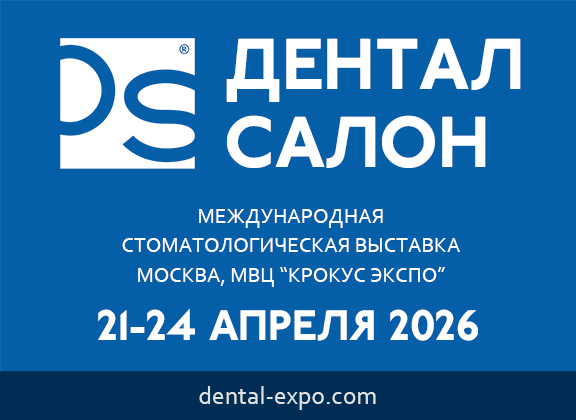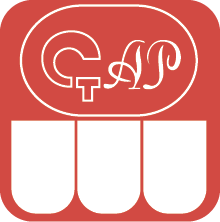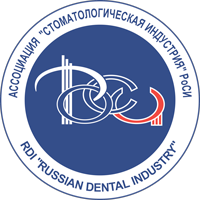DOI:
10.37988/1811-153X_2022_4_144The skeletal anchorage in the orthodontic treatment of constricted maxilla in the early mixed dentition: A case report
Downloads
Abstract
Miniscrew assisted rapid palatal expansion (MARPE) is a minimally invasive and effective method of treatment for patients patients with maxillary constriction. The technique involves the design and manufacture of the rapid maxillary expansion appliance, with miniscrew anchorage in the palatal cortical bone tissue. Currently, using skeletal anchorage is becoming an increasingly common way to treatment in cases of constricted maxilla because this method: 1) facilitates the management of complex orthodontic biomechanics; 2) can be successfully used to treat transverse maxillary deficiency in borderline cases. It was also found that MARPE effectively opens the midpalatal suture in children at the initial stage of ossification. The stability of the appliance depends on the hard palate anatomical structure and the possibility for bicortical miniscrew placement taking into consideration application of orthopedic forces above 200 grams when the appliance is activated. The clinical case of a 8-year-old patient with maxillary constriction. The patient was treated with MARPE technique application. We described a full digital work-flow using CAD-CAM that can help clinicians in defining the appropriate placement of micro-implant supported maxillary skeletal expander according to quantitative and qualitative bone characteristics of the palate region and this workflow can also enhance cooperation between the orthodontists and lab technicians in construction of the appliance.Key words:
constricted maxilla, miniscrew, miniscrew assisted rapid palatal expansion, digital modellingFor Citation
[1]
Pesenko E.V., Gunenkova I.V., Ospanova G.B., Volchek D.A., Mokhirev M.A., Byzov N.A. The skeletal anchorage in the orthodontic treatment of constricted maxilla in the early mixed dentition: A case report. Clinical Dentistry (Russia). 2022; 25 (4): 144—148. DOI: 10.37988/1811-153X_2022_4_144
References
- Arsenina O.I., Popova N.V., Makhortova P.I., Gairbekova L.A. A comprehensive diagnostic and treatment of patients with narrowing and deformities of the upper jaw. Clinical Dentistry (Russia). 2019; 1 (89): 51—57 (In Russ.). eLIBRARY ID: 37128729
- Meshalkina IrinaV., Korsak L.V., Tkachenko T.B. Comparative analysis of speech therapy and orthodontic effects of orthodontic equipment used in the replacement bite to expand the upper dentition. Russian Journal of Dentistry. 2020; 1: 23—27 (In Russ.). eLIBRARY ID: 42605785
- Lo Giudice A., Barbato E., et al. Alveolar bone changes after rapid maxillary expansion with tooth-born appliances: a systematic review. Eur J Orthod. 2018; 40 (3): 296—303. PMID: 29016774
- Slabkovskaya A.B., Shugueva L.D., Jigalkina E.B. Estimation of efficiency of the appliances for dentition expansion. Orthodontics. 2016; 4 (76): 32—41 (In Russ.). eLIBRARY ID: 29443389
- Slabkovskaya A.B., Lugueva D.Sh., Telunts Yu.S. Complications resulting from the use of expansion appliances. Orthodontics. 2016; 2 (74): 21—25 (In Russ.). eLIBRARY ID: 27174550
- Lux C.J., Conradt C., Burden D., Komposch G. Transverse development of the craniofacial skeleton and dentition between 7 and 15 years of age—a longitudinal postero-anterior cephalometric study. Eur J Orthod. 2004; 26 (1): 31—42. PMID: 14994880
- Garib D.G., Henriques J.F., Janson G., de Freitas M.R., Fernandes A.Y. Periodontal effects of rapid maxillary expansion with tooth-tissue-borne and tooth-borne expanders: a computed tomography evaluation. Am J Orthod Dentofacial Orthop. 2006; 129 (6): 749—58. PMID: 16769493
- Park J.J., Park Y.C., Lee K.J., Cha J.Y., Tahk J.H., Choi Y.J. Skeletal and dentoalveolar changes after miniscrew-assisted rapid palatal expansion in young adults: A cone-beam computed tomography study. Korean J Orthod. 2017; 47 (2): 77—86. PMID: 28337417
- Lo Giudice A., Galletti C., Gay-Escoda C., Leonardi R. CBCT assessment of radicular volume loss after rapid maxillary expansion: A systematic review. J Clin Exp Dent. 2018; 10 (5): e484-e494. PMID: 29849974
- Lo Giudice A., Quinzi V., Ronsivalle V., Martina S., Bennici O., Isola G. Description of a digital work-flow for CBCT-Guided construction of micro-implant supported maxillary skeletal expander. Materials (Basel). 2020; 13 (8): E1815. PMID: 32290597
- Baysal A., Karadede I., Hekimoglu S., Ucar F., Ozer T., Veli I., Uysal T. Evaluation of root resorption following rapid maxillary expansion using cone-beam computed tomography. Angle Orthod. 2012; 82 (3): 488—94. PMID: 21843038
- Leonardi R., Lo Giudice A., et al. Three-dimensional evaluation on digital casts of maxillary palatal size and morphology in patients with functional posterior crossbite. Eur J Orthod. 2018; 40 (5): 556—562. PMID: 29474543
- Lee K.M., Hwang H.S., Cho J.H. Comparison of transverse analysis between posteroanterior cephalogram and cone-beam computed tomography. Angle Orthod. 2014; 84 (4): 715—9. PMID: 24325622
Downloads
Received
August 24, 2022
Accepted
October 25, 2022
Published on
December 21, 2022










